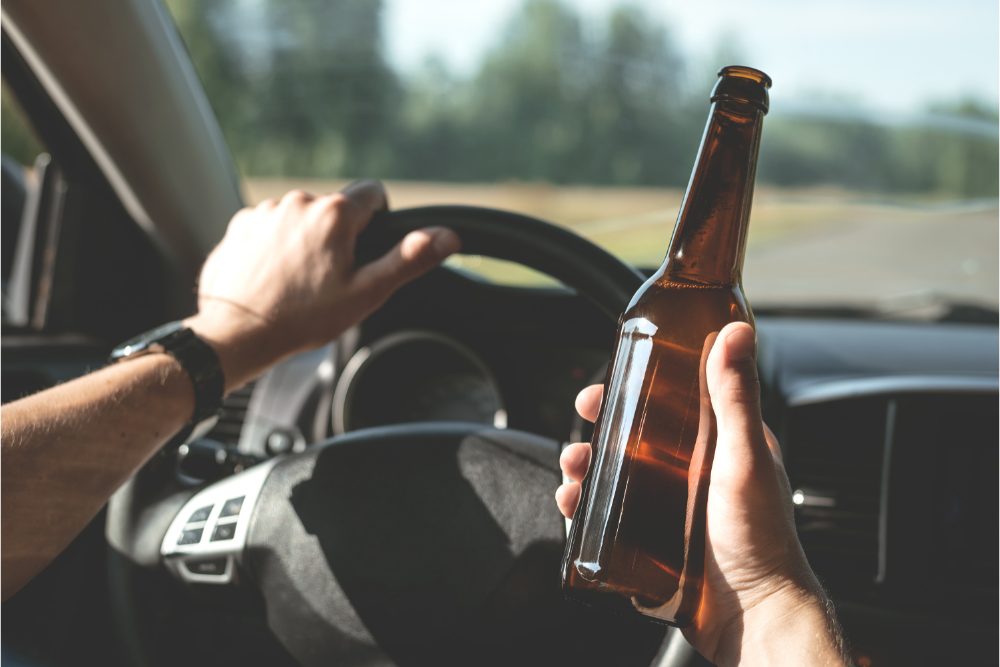In this article, Wellbrook Recovery explains how family and friends can recognize the signs and symptoms of a functioning alcoholic. Early intervention is key when someone you care about is suffering from an Alcohol Use Disorder (AUD), whether their diagnosis is mild, moderate, or severe.
What Is a Functioning Alcoholic?
A functioning alcoholic, or a high-functioning alcoholic, is someone addicted to alcohol who still gives the outward impression that they can control their drinking. They may not show common signs that are often associated with alcoholism. The terms “high-functioning alcoholic” and “functioning alcoholic” can be used interchangeably, and those who fit this description may deny they have the problem because of the following factors:
- They successfully hold down a job
- They maintain personal hygiene
- Their home is tidy
- They don't drink to excess in front of other people
- They don't show open signs of being intoxicated
- They maintain their relationships
However, the designation “high-functioning alcoholic” can be deceptive. First, the person may believe that they are performing well on the job or that their loved ones and friends aren’t affected, but the reality can be much different. In addition, they may fit the description of a high-functioning alcoholic in the early phases, but as time goes on, they may show more and more signs of falling apart as the addiction progresses.
The High-Functioning Alcoholic: Tricks of the Trade
How can a high-functioning alcoholic maintain an outward appearance of normalcy while being addicted to alcohol? The answer is that they develop many “tricks” that work at first but eventually cease to be effective as they become increasingly dependent on alcohol. They may use the following strategies to minimize their alcohol dependency in the eyes of loved ones:
- Hide their drinking
- Use the "hair of the dog" method to drink away hangovers
- Frequently brush their teeth and use cologne or mouthwash to hide the smell of alcohol
- Invite others to drink with them frequently
A high-functioning alcoholic may keep alcohol at work, in unusual areas at home, or in a flask to ensure they can always drink away withdrawal symptoms. They usually use the “hair of the dog” method and drink more to avoid a hangover. They conceal the odor and are quick to encourage others to drink so they can rationalize their own drinking. In addition, when they go out to drink, they will drink alone before and after socializing.
According to a study conducted by the NIAAA, an estimated 20% of people who suffer from AUD appear to be highly functioning. They are typically middle-aged, well-educated, and employed with a family life.
Signs of a Functioning Alcoholic
Do you suspect a family member or friend is a functioning alcoholic? The following are some telltale signs of a high-functioning alcoholic:
- Defensiveness
- Tendency to downplay drinking
- Deny being addicted
- High tolerance for alcohol
- Hides drinking
- Drinks a large amount without seeming drunk
- Drinks in dangerous or inappropriate situations
Most people would deny they have a drinking problem. The difference between the way a high-functioning alcoholic deals with this question and the way anyone else would is that people who don’t have a problem are unlikely to be angry or defensive. However, a high-functioning alcoholic will likely snap back, get angry, or come up with a list of reasons why their drinking is normal, even when it isn’t.
They will say they can handle their drinking and one reason they believe this is they can put away large quantities of alcohol. This is not a sign of self-control, but rather, a sign of functional tolerance due to drinking large amounts of alcohol for a long time.
The functioning alcoholic possibly drinks in unusual or dangerous situations, such as in their car or the morning before work.

How to Tell if Someone Is an Alcoholic
The signs of a high-functioning alcoholic are similar to those of a regular alcoholic. The difference is their attitude about drinking and the appearance they project. However, these appearances are illusory and rarely last long.
According to the Diagnostic and Statistical Manual of Mental Disorders (DSM-5), an AUD is defined as “a problematic pattern of alcohol use leading to clinically significant impairment or distress”. Does someone you care about exhibit the following signs of alcohol addiction:
- Inability to limit the amount of alcohol consumed
- Spending a lot of time drinking
- Frequent hangovers
- Experiencing a strong impulse or craving to drink
- Developing a high tolerance to alcohol and needing to drink more
- Experiencing withdrawal symptoms when not drinking
An alcoholic may deny they have a drinking problem, but they can’t limit the amount they drink or avoid drinking. They claim they can quit at any time and yet they can’t go a day without emotional or physical discomfort when deprived of alcohol.
Both “regular” alcoholics and functioning alcoholics will devote a lot of their time to drinking and may avoid activities they would otherwise enjoy so they can consume alcohol. They likely deal with hangovers often and struggle to conceal them.
As time passes, they will need to drink more to feel the same effect. An alcoholic or high-functioning alcoholic will get to the point where they may experience physical withdrawal symptoms if they stop drinking.
Symptoms of a Functioning Alcoholic
The following are symptoms of a high-functioning alcoholic:
- Conceal their drinking
- Rationalize their drinking
- Deny they have a problem
- Avoid key responsibilities
- High alcohol tolerance
- Blackouts after drinking
- Joke about their alcohol use
- Defensive about their drinking
A high-functioning alcoholic is often obsessed with appearances. They will drink the same amount as their friends when out but may have a few drinks before or after the bar. They may also conceal their drinking during lunch hour at work or in the morning.
They often joke about their drinking and rationalize it. If they don’t deny they are alcoholics, they will call themselves high-functioning alcoholics and make it seem like no big deal. In any case, they will deny they have a problem, even if they do admit to drinking a lot.
Although the high-functioning alcoholic is concerned about their appearance and will try to ensure they seem to be successful, they will show neglect in other things, such as their relationship with their children, and will cut corners in other areas so they can drink. One thing a high-functioning alcoholic may have trouble concealing is the amount they drink since their tolerance is very high.
Dating a Functioning Alcoholic
When you have a drink on a date with a high-functioning alcoholic, it may be shocking to see the amount they drink. Their concept of a normal amount of drinking is usually somewhat warped, and it may not be unusual for them to drink several drinks in less than an hour.
The following signs indicate that your partner is a high-functioning alcoholic:
- Drinking large amounts in one sitting
- Personality changes based on drinking or not drinking
- Resolving and failing to cut down
- Anger or defensiveness at the suggestion they have a drinking problem
- Neglecting commitments because of drinking
- Lack of interest in activities that don't involve alcohol
A partner of a high-functioning alcoholic may notice marked personality changes surrounding drinking. They are irritable before they drink, suddenly calm after they begin to consume alcohol, and then, with additional drinks, they could become moody, insulting, or belligerent. In some cases, they may black out and forget they’ve lost consciousness.
They are likely to express anger or defensiveness when confronted about their drinking. On the other hand, they could rationalize it and even embrace the term “high-functioning alcoholic” as if it isn’t a problem. They might even address their partner’s concern and attempt to quit or cut down, but they will be unable to.
Although they feel they are keeping up appearances, the high-functioning alcoholic is lax about keeping their commitments, especially to family members and partners. They may stand someone up without explanation and minimize the event. In addition, they are likely to show a lack of interest in activities that don’t involve alcohol.

Functional Alcoholic Behavior and Its Impact
Even functioning alcoholics experience the risk factors and the negative impact of their alcohol use.
The following are the risks of alcoholism:
- Liver dysfunction
- Cardiovascular problems
- Certain types of cancer
- Memory problems
- Alcohol-related brain and neurological problems
- Lower immunity
- Mental health issues brought on by alcohol abuse
Even if a person manages to hold onto their job or stay married as a high-functioning alcoholic, they are still vulnerable to the same physical conditions other alcoholics face. Liver problems are at the top of the list, and alcoholics also may suffer from cardiovascular problems and have a higher risk of certain cancers.
Heavy alcohol use also affects the brain and the nerves and impacts memory. The immune system may also be impaired by excessive alcohol consumption. Drinking heavily can lead to depression, anxiety, and, in extreme cases, alcohol-related psychosis.
When to Seek Help
A functioning alcoholic may not think they need addiction treatment, but in the following cases, they must seek help:
- Signs of health problems
- Extreme mood swings and emotional dysregulation
- Decline in ability to function in daily life
- Drinking in dangerous situations
- Inability to stop without withdrawal symptoms
Someone who believes they are a high-functioning alcoholic may cease to fit this description but not realize it.
Although they are holding on to their jobs, they may have received warnings from employers and are missing meetings. They minimize the importance of these events, but others probably notice. If they drink while driving or operating machinery, they must get help. If they are unable to stop without withdrawal symptoms, they need to seek assistance because it can be dangerous for an alcoholic to stop suddenly on their own.
How Family and Friends Can Offer Support
It isn’t easy to confront a high-functioning alcoholic, but with information, planning, and compassion, it is possible to reach them.
- Be informed about alcoholism and the type of treatment programs available
- Be non-judgemental and empathetic
- Provide specific alcohol addiction treatment options
- Offer support before, during, and after initial treatment
Learning about alcoholism is an essential first step when approaching a high-functioning alcoholic about getting help. Don’t focus on the effects of their behavior on you, but instead, show empathy and focus on them. It’s essential to do more listening than talking and being open to hearing the person.
Rather than just telling them to seek help, list treatment options, including support groups like Alcoholics Anonymous, therapy, and inpatient rehab. Offer and demonstrate you will be with them every step of the way, throughout treatment and afterward.
If your friend or loved one is a high-functioning alcoholic, reach out to Wellbrook Recovery for help. We offer a unique recovery experience for individuals struggling with an alcohol addiction or any substance abuse. From medical detox to residential inpatient rehab and outpatient programs, Wellbrook Recovery provides a full continuum of care for overcoming AUD and attaining sobriety. With a personalized treatment plan and a dedicated staff with years of professional experience, we create a safe place for people to confront their addiction and reclaim their lives.









